
Sabah First – The Message & Strategy Behind UPKO Quitting PH
November 12th, 2025 by financetwitter
Just five days ahead of the Sabah state election nomination day, the United Progressive Kinabalu Organisation (UPKO) suddenly dropped a bombshell – withdraws entirely from the ruling government led by Pakatan Harapan (PH) coalition. The stunning decision also came about one day after UPKO party president Ewon Benedick resigned as Entrepreneur and Cooperatives Development Minister.
In Malaysia, where ministers rarely resign voluntarily, Ewon’s resignation has raised eyebrows, speculations, and praises. The only two other MPs who had resigned were Economy Minister Rafizi Ramli and Natural Resources Minister Nik Nazmi Nik Ahmad. Even then, Rafizi and Nik Nazmi quit only after they had lost their internal party PKR election.
Amusingly, when Ewon resigned on Saturday (Nov 8) over what he said was “disregard” by the Attorney General’s Chambers (AGC) for Sabah’s constitutional right to 40% of federal revenue derived from the state, many laughed at it as nothing but a political stunt to project himself as a hero of the people of Sabah ahead of the state election, while betting his party UPKO would not dare quit.
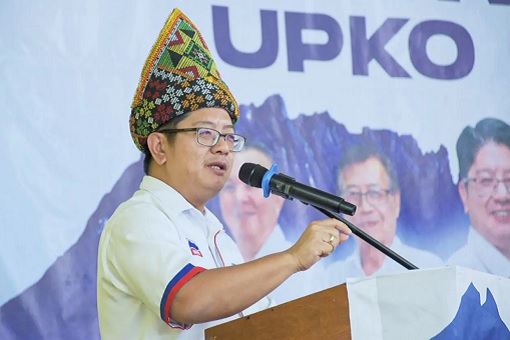
Now that UPKO has quit, the same genius analysts are mocking the party’s exit from PH as merely tactical, insignificant, politically driven steps designed to attract attention ahead of the polls. UPKO was even ridiculed as a mosquito party with two parliamentary seats and one state seat, too small to have a major impact on PH’s momentum. In short, UPKO can go fly kite for all PM Anwar hardcore supporters care.
Did they even realize that without UPKO, PKR president Anwar would have failed to become the 10th Prime Minister because without UPKO’s 2 parliamentary seats, the combined Pakatan Harapan’s 80 MPs and Barisan Nasional’s 30 MPs were insufficient to form a simple-majority government in the 222-seat Parliament after the Nov 2022 General Election that produced a hung parliament?
If indeed Mr Ewon’s resignation and UPKO’s withdrawal were merely desperate moves or “propaganda politics” that have little impact, exactly why Prime Minister Anwar Ibrahim was so concerned that he described Ewon’s resignation as “premature”, and said that the federal government was still reviewing Sabah’s 40% revenue entitlement before deciding on its next steps?
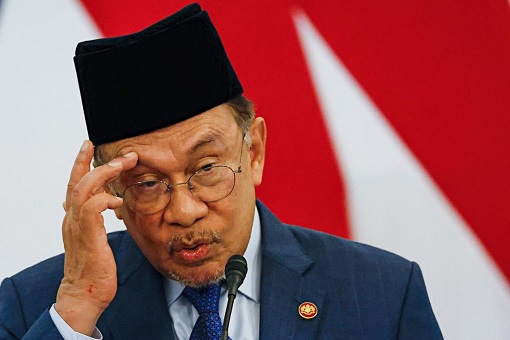
If Ewon’s resignation was a cheap political drama, his party UPKO did not have to pull out of the mighty Pakatan Harapan coalition. The fact that UPKO is a small party also offers more reasons why it should not withdraw in the first place. It has more to lose than gain by leaving the comfort zone, erasing it from the luxury government allocation, machinery and resources. Yet, the party bravely quit.
On October 17, the Kota Kinabalu High Court ruled the federal government had acted unlawfully and exceeded its constitutional powers by failing to fulfil Sabah’s entitlement to 40% of federal revenue over nearly five decades. Judge Celestina Stuel Galid described the special grant arrangement between the federal and Sabah governments as “invalid, ultra vires, and irrational,” and in breach of the Federal Constitution.
In addition, the court in Borneo Sabah issued a mandamus order, which compels Putrajaya to review the revenue allocation with the Sabah government. It also ordered that an agreement be reached on Sabah’s 40% share of federal revenue for each financial year from 1974 to 2021, with this process to be completed within 180 days – a slap in the face of the “Malaya” federal government.
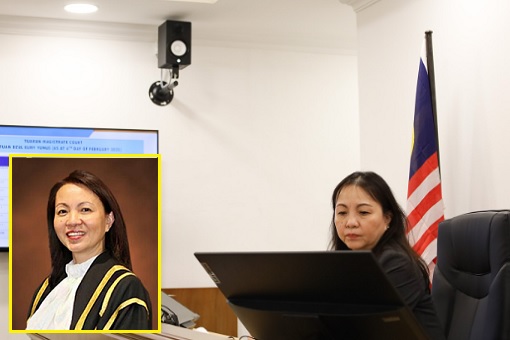
Unhappy with the court’s decision that appears to challenge his leadership, narcissist Prime Minister Anwar Ibrahim fought back, arguing that RM10 billion was collected and RM17 billion was “given back,” conveniently (either deliberately or ignorantly) mixing two separate accounts – federal expenditure and constitutional repayment. As the second-poorest state in Malaysia, it’s hard to believe Sabah had received more income than being plundered.
The main reason leading to Ewon’s resignation was signs by the Attorney General’s Chambers (AGC), who reports to the Prime Minister Office, to appeal the court’s decision. “The department will conduct a thorough review of the judgment and consider all relevant legal aspects before taking any further action,” – the AGC said after it had received the court’s written judgment.
“The AGC’s approach towards the 40% entitlement during my three years in the federal Cabinet has contradicted my stance as UPKO president. The position and views expressed by the AGC disregarded the historical foundation of Malaysia’s formation – including the terms and conditions under which Sabah agreed to form the Federation of Malaysia,” – explained UPKO president Ewon.
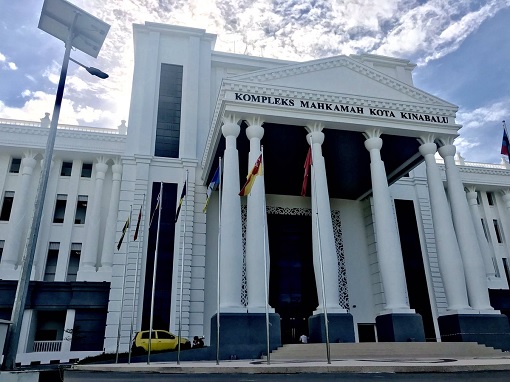
“I cannot agree with the position and interpretation taken by the AGC, who serves as the legal adviser to the prime minister and the federal government. It would therefore be highly improper for me to continue serving in the federal Cabinet given the AGC’s position, which I believe will remain unchanged,” – said Ewon, who had earlier warned that he will step down from the Anwar Cabinet if the AGC proceeded with an appeal.
Citing UPKO’s constitution, Ewon said one of the party’s principles was to uphold the 1963 Malaysia Treaty and Sabah’s constitutional rights. He added that UPKO’s fight was rooted in the Cobbold Commission Report, the Inter-Governmental Committee Report, the Malaysia Agreement of 1963, and the Malaysia Act, all of which set the terms for Sabah’s participation in the formation of Malaysia.
The Cobbold Commission was set up to determine whether the people of Sabah and Sarawak backed the proposal to create the federation of Malaysia, which also initially included Singapore. The commission had emphasised that Sabah and Sarawak should be equal partners to Malaya. “As the President of UPKO, I would like to see Sabah’s rights exercised. That’s the principle and the reason I joined politics,” – Ewon wrote on Facebook.

Playing a game of cat and mouse, the AGC hinted of an appeal whilst PM Anwar kept everyone guessing, his infamous trademark. Instead of a decisive “yes” or “no”, both the AGC and Anwar were beating around the bush about their plan to appeal the court’s decision. Ewon might not be clever, but he was smart enough to smell a rat after four years working with the premier.
The UPKO president deliberately and specifically mentioned AGC as the legal adviser to the prime minister to deliver a point. And the point is Anwar can “stop pretending” that he was not aware of any plan by the Attorney General to appeal. Ewon also wanted to tell the prime minister that unlike other power-crazy ministers, he was more than happy to surrender the cushy job due to “Sabah First”.
Crucially, UPKO top leadership was calling PM Anwar and AGC’s bluff. If the AGC appeals, then it will prove that the Sabah political party was correct to quit the federal government out of dignity, principles and the people of Sabah. If the AGC does not appeal, then UPKO can claim victory as its decision to quit successfully pressured the Anwar government. Either way, UPKO wins.
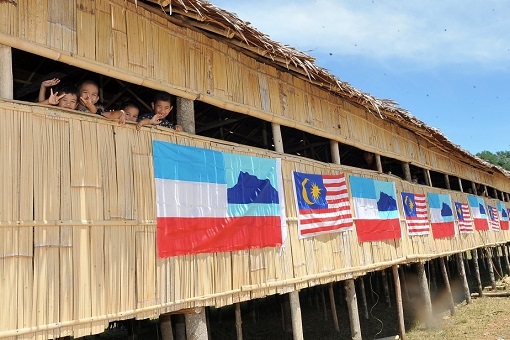
On Tuesday (Nov 11), the AGC – obviously trapped – decided not to appeal. However, to both save face and to attack the Sabah High Court, the AGC claims there were several defects in the Sabah High Court’s judgement. In short, the Anwar-appointed Attorney General wanted a “review” of the court’s ruling, despite its insincere decision not to appeal.
Call it appeal, review, or whatever you want. The fact that the AGC has refused to fully comply with the Kota Kinabalu High Court’s ruling, even to the extent of challenging and lecturing Judge Celestina Stuel Galid’s decision speaks volume about the arrogance of the federal government. This indirectly proves that Sabah has been bullied and plundered from 1974 till today.
Anwar’s own party PKR (People’s Justice Party) should learn how to be humble rather than arrogantly mocking UPKO. In the 2020 Sabah state election, PKR won only 2 seats, despite Anwar’s personal campaign. In Borneo, PKR too is a mosquito party that depends on local party to rally for support and votes. It would be a huge humiliation if PM Anwar fails to win more than 2 seats this round.
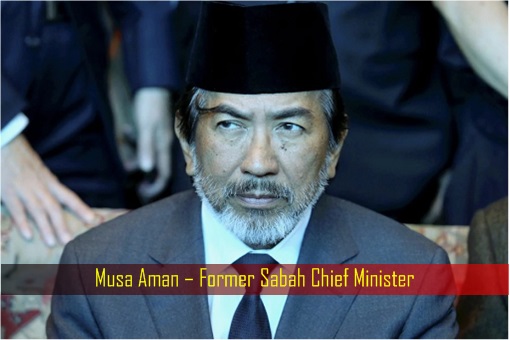
Heck, PKR is so desperate – and shameless – that it is roping the son of Sabah Governor Musa Aman, who was once the most corrupted Chief Minister of Sabah. Now, we fully understood why Prime Minister Anwar gladly welcomed the appointment of the former Sabah Chief Minister as the state’s 11th Governor in December 2024 – birds of a feather flock together.
Some gullible Anwar fans might think the premier is popular. But many Sabahans still view Anwar with distrust because when he served as former PM Mahathir Mohamad’s deputy in government from 1993 to 1998, Anwar was also involved in covert operations to alter the demographics of the state by issuing citizenships to illegal Muslim refugees from the neighbouring islands of southern Philippines and Indonesia.
This is another reason why Ewon decided to resign and UPKO decided to quit to distance itself from Pakatan Harapan after the Sabah High Court’s verdict. As far as Sabah people are concerned, to challenge Sabah’s constitutional right to 40% of federal revenue derived from the state is like to challenge Malaya’s NEP (New Economic Policy) or “Ketuanan Melayu” (Malay supremacy).
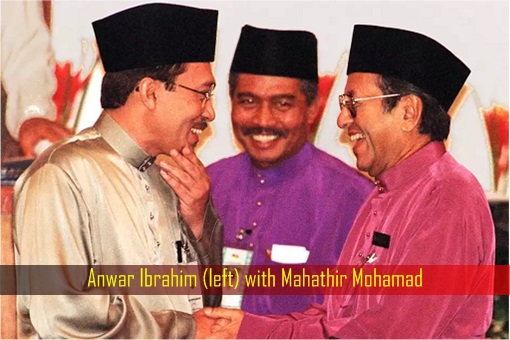
Like it or not, Anwar Ibrahim is toxic rather than popular in Sabah, otherwise UPKO Special Supreme Council meeting would not have expressed full support for party president Ewon Benedick’s resignation and the party’s withdrawal from both Pakatan Harapan coalition and the federal government. If Anwar is so popular as he would like everyone to believe, UPKO could just ride on his popularity to win seats.
UPKO is a Sabah party, the same way PKR is a Malayan party. Across the South China Sea, UPKO is irrelevant in Peninsular Malaysia whilst PKR is irrelevant in Sabah. UPKO’s four-year involvement in Pakatan Harapan was guided by the Sabah First agenda, which the party consistently championed during negotiations over the PH election manifesto.
Over time, however, differences – even conflicts – in interpretation and position had increasingly emerged between UPKO and the national PH component parties, particularly concerning the implementation of Sabah’s 40% revenue entitlement, the demand for one-third of parliamentary seats for Sabah and Sarawak, and the failure to implement administrative autonomy for PH Sabah.
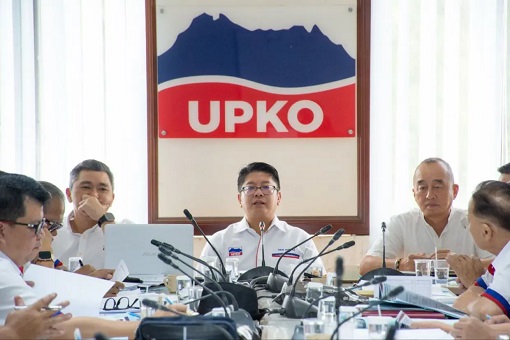
To make matters worse, despite UPKO being chosen to chair PH Sabah through a legitimate state-level meeting, the decision was never formalised by the PH Presidential Council due to objections from PKR Sabah. Yes, even though Ewon Benedick was the Sabah Pakatan Harapan chairman, the arrogant PKR Sabah has never respected him, leading to the UPKO president being merely a “coordinator”.
More importantly, UPKO’s bold and stunning decision to leave Anwar Madani was not merely about the Sabah state election alone. Ewon is preparing for the next 16th General Election, which could be called as early as next year (2026). The party’s survival is in Sabah, not in Malaya. Even PKR may lose some parliamentary seats in the next national polls due to disillusioned and disgruntled Chinese voters.
To emerge stronger, Ewon and UPKO realized that they need to win not only more state seats, but also parliamentary seats, which could only be achieved by defending, protecting and fighting for Sabah’s rights. Besides, there’s no guarantee that Anwar Ibrahim will still remain as the prime minister after the 16th General Election. For better or worse, UPKO has to leave.
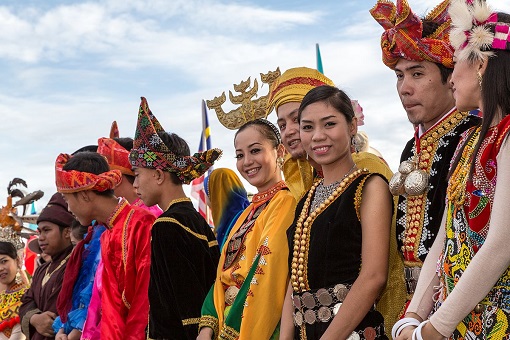
No comments:
Post a Comment